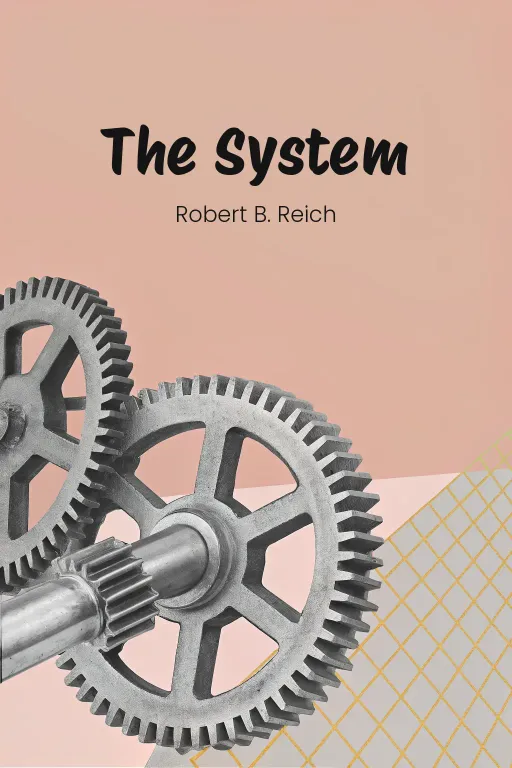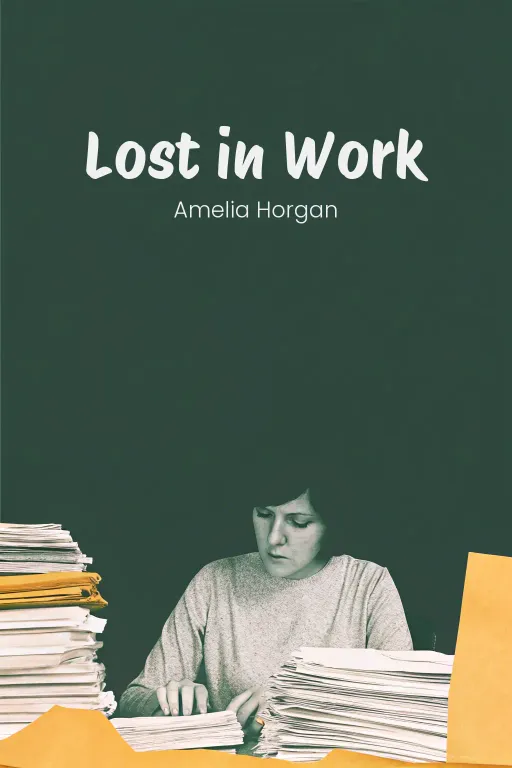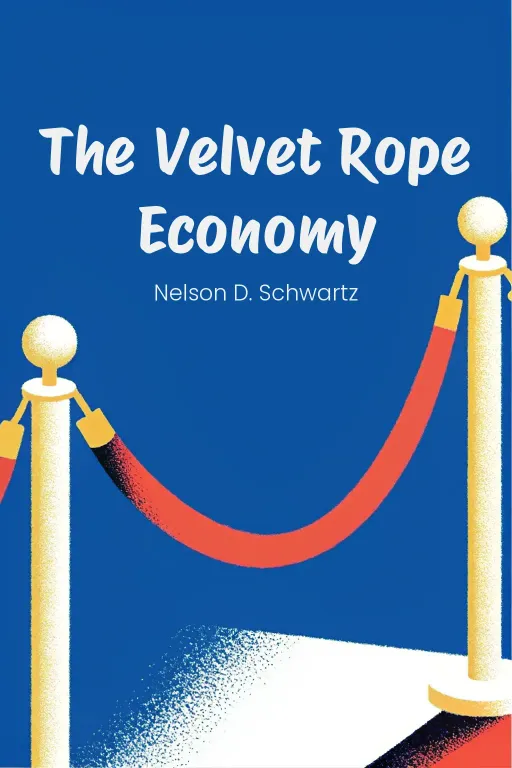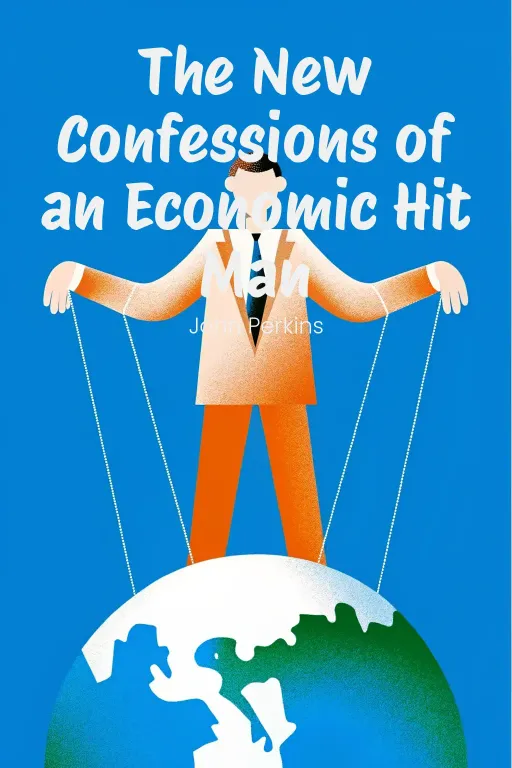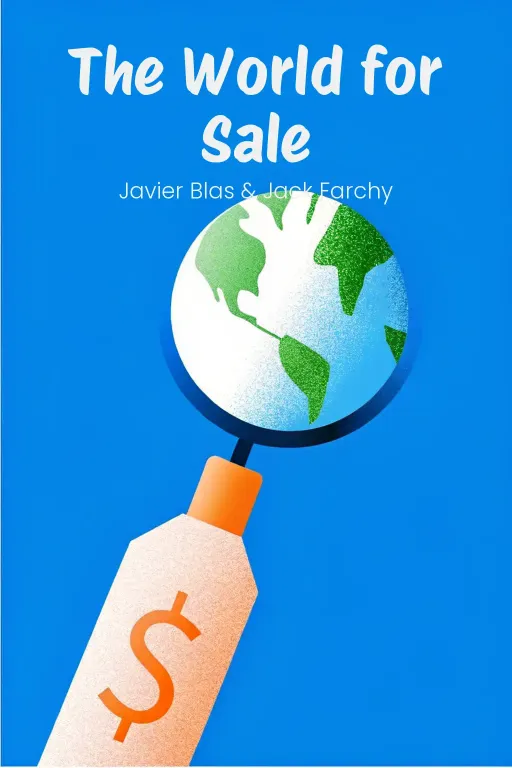
Work Doesn't Work: Reclaim Your Life
Podcast by Civics Decoded with Thomas and Grace
Escaping Capitalism
Work Doesn't Work: Reclaim Your Life
Part 1
Thomas: Hey everyone, welcome to the show! I want to kick things off with a question: How often do we hear that work is “the” key to a meaningful life, right? That it's where we find our purpose, identity, even success? But what if I told you that’s actually a carefully constructed myth, a story we've been sold under capitalism? Grace: Woah, so you're suggesting this whole "love what you do" thing is a giant scam? That's a bold statement, Thomas, but... honestly, it rings true. I mean, who hasn’t stared at their to-do list and thought, "Seriously? This is it?" So, what are we digging into today? Thomas: We’re diving into Amelia Horgan’s Lost in Work. Look, it's a pretty powerful critique of modern labor under capitalism. Horgan basically argues that work, as we experience it, isn't really designed to empower us. It's designed to extract as much value as possible. And that includes everything from physical labor to emotional energy, and even how we see ourselves. She really looks at the historical roots of all this, at how it deepens inequality. And, importantly, she explores how we can imagine a better future where work isn’t just about profit. Grace: Sounds intense, but definitely relevant. So, what’s the game plan for this episode? Thomas: Okay, so we're tackling three big areas. First, we're going to unpack the glossy, often false promises of working under capitalism—you know, from that whole "climbing the corporate ladder" to those oh-so-generous workplace "perks". Next, we are breaking down how systems of gender, race, and class are deeply woven into labor exploitation, creating these massive inequalities that just won't go away. And finally, we're going to explore the more radical ideas that Horgan puts forward – you know, new ways to organize work and society that actually put people first, instead of just focusing on the bottom line. Grace: Alright, so we're looking at tearing down the illusion, exposing the unfairness, and then… daring to imagine something better. Let's see if this book can deliver.
The Myth of Work Under Capitalism
Part 2
Thomas: Okay, Grace, let's jump into this whole myth surrounding work under capitalism. The core question Horgan tackles is: why are we constantly told that work is where we'll find meaning and fulfillment, when, for most of us, the reality is completely different? Apparently, this narrative serves a purpose—keeping us in line within a system that values profit above all else. Grace: And by "compliant," do you mean we're willingly joining the rat race because we're being sold the "fulfillment" dream? Like, work hard and not only will you succeed, but you’ll actually enjoy it? Thomas: Precisely. It’s the good old "American Dream" revamped for the corporate world. Think about all those slogans: "Do what you love, and you'll never work a day in your life." But Horgan argues that's completely wrong. Most jobs, especially in sectors like retail, hospitality, or manufacturing, aren't designed to fulfill you; they're designed to squeeze as much value out of you as possible, until you're either burnt out or replaced. Grace: Or both, yeah. Let's think about that with an example. You mentioned retail – those workers are often earning minimum wage, and yet they’re supposed to be energetic, always smiling, dealing with angry customers, and still hitting crazy sales targets. How is that supposed to be fulfilling? Thomas: Exactly! Horgan examines those exploitative conditions and points out exactly this: how inhumane labor practices are repackaged as "just part of the job." And here's the kicker: even when workers try to organize for better conditions—higher wages, reasonable hours—they’re often punished. Grace: So, there's this huge disconnect between what we're told—that work should be a source of joy and identity—and the reality, which can be physical and mental exhaustion. What about garment workers, especially in the Global South? Thomas: They are a prime example of this exploitation. Garment workers in places like Bangladesh or Vietnam deal with unrealistic production quotas while working in dangerous conditions. Horgan “really” highlights the inequality here: only a tiny fraction of these workers ever earn what we'd consider a living wage. Meanwhile, the profits they generate for these fast fashion giants are huge. Grace: And these are the same workers sewing clothes that sell for hundreds of dollars? It's awful. The contrast between their daily struggle and the feel-good marketing these brands put out – slapping "sustainable" or "ethical" labels on everything, expecting us to applaud – it's just absurd. Thomas: That’s connected to what Horgan calls the commodification of labor. It’s not just about selling things; it’s about selling the idea that work is inherently good because it produces something of value. But the worker's dignity? That's completely ignored. Grace: Then COVID hit, and suddenly some workers were "essential." Heroes, even. Wasn't that a perfect illustration of this mismatch we're talking about? Thomas: Absolutely. One of Horgan’s most biting points is how the term "essential worker" was almost weaponized. Healthcare workers, grocery clerks, delivery drivers – they were called heroic, indispensable, but it was basically just a pat on the back while they endured awful conditions. Many times, they weren’t given the things they needed – or fair pay – to stay safe or sane during a global crisis. Grace: Right, this almost absurd situation. We were clapping for nurses every night, while they were reusing masks, working endless shifts, and being told it was just part of their "noble calling." It's so twisted. Thomas: Exactly. This celebration of sacrifice is also part of the myth. It turns systemic neglect into individual virtue. Horgan is pointing out that workers didn’t need symbolic gestures—they needed tangible support, like hazard pay, proper protective equipment, and manageable hours. Instead, the whole heroism thing became a way to cover up systemic failures. Grace: Okay, what about the emotional labor aspect? That “really” resonated with me. It’s one thing to physically overwork yourself, but what happens when your job requires you to hide your emotions, too? Smiling when you’re completely stressed out? Thomas: That's a major theme in Horgan's analysis. Emotional labor, which sociologist Arlie Hochschild wrote about, is about managing your own emotions to meet workplace expectations. It's common in customer-facing jobs, but as Horgan points out, it's rarely seen as "real" labor. And it’s definitely not compensated for properly. Grace: Right. She brings up the service industry – workers told to smile like they’re in a toothpaste commercial while dealing with low pay, irregular hours, and rude customers. All for what? A good Yelp review? Thomas: And it’s not just retail or service. Think about care workers, teachers, or therapists. These jobs require a lot of emotional labor, but the physical and mental toll is ignored because, again, the system leads us to believe it's just part of the job. It normalizes exploitation, but wraps it in language of sacrifice or passion. Grace: So, to sum it up: physical strain, mental exhaustion, emotional depletion, all dressed up as a "work" badge of honor. It’s hard not to notice that the system is designed to squeeze us dry while offering this false hope of fulfillment. Thomas: Exactly. And when we take a step back, we start to see how those mechanisms—whether it’s inadequate pay, unsafe conditions, or emotional labor—trap us in a state of alienation. And this is the concept of alienation itself, “really” a key component of Horgan’s argument. Connecting these real-world examples to Marx’s theory, she talks about how capitalism disconnects workers from their labor, their own humanity, and even each other. Grace: Alienation as in, "The work I do doesn't connect to who I am?" Thomas: Precisely. Think of an assembly line worker producing widgets all day long, without any connection or imagination. By the end of that day, they probably don’t even know where the product goes or who it benefits. Their labor is abstract, meaningless. That's what Horgan's drawing attention to. Grace: And, ironically, that alienation fuels the myth. If workers are disconnected and feel powerless, they’re less likely to think about alternatives or question the system. Thomas: Bingo. That's why exposing these myths is so important. If we can take apart that narrative, we might be able to rebuild things in a way that prioritizes dignity and fairness over just profits.
Structural Inequalities in Labor
Part 3
Thomas: Understanding this foundational myth really sets the stage for examining the broader, structural issues embedded in our capitalist work systems . I mean, it's not “just” about the lie that work is inherently fulfilling, right? It's about the actual mechanisms that make sure inequality persists at every level . And that brings us to these structural inequalities in labor, where the very design of these systems devalues certain groups and, you know, sustains exploitation . Grace: So, we’re going even deeper now, basically breaking down how capitalism doesn’t just exploit individuals, but it kind of targets whole demographics based on gender, race, and class, right? Talk about systemic planning on an industrial scale ! So, where does Horgan start out with this? Thomas: She really digs into the roots of how labor systems were designed to exploit, like, from the very beginning . Take women's work, especially domestic labor . For generations, women have been expected to handle household tasks, caregiving, all that for free, and society just kind of dismisses it as their "natural role." This has massive economic repercussions because reproductive labor – things like raising kids, cooking, maintaining a household – it's fundamental to keeping the entire system running . Grace: Right, but instead of acknowledging it as vital work, it’s conveniently sidelined as… what, an act of love? A duty ? It’s essentially unacknowledged labor, isn’t it? Thomas: Exactly ! Silvia Federici, one of the movement leaders, who Horgan references, argued that capitalism depends on this unpaid labor to thrive . It's like the economic lifecycle sort of starts in the household, right? Workers are fed, cared for, nurtured, but none of that gets measured or compensated . Federici even called for wages for housework because she saw it as the backbone of economic activity . Grace: Okay, let me get this straight . The entire economy leans on the fact that housework is invisible and unpaid – because if households were paid for it, companies would have to foot part of the bill, indirectly? Sounds like capitalism just got a freebie that's been there ever since day one . Thomas: That's one way to put it . But I think the broader issue is how this devaluation locks women into cycles of economic dependency . Horgan connects this to modern debates . Even today, caregiving roles, like being a nanny or a home care worker, tend to pay poorly because of that historical association with "women's natural work." It's all about minimizing compensation while maximizing extraction . Grace: And let’s not forget the race angle here . Caregiving jobs aren’t just gendered; they’re racialized, too . You’ve got women of color disproportionately taking up these roles, facing lower pay and even worse conditions . I mean, seriously? Thomas: Absolutely . Horgan also dives into how race compounds the exploitation . Historically, marginalized racial groups have been pushed into low-wage, high-labor jobs—agricultural work, domestic service, garment factories, you name it . And rather than correcting this legacy of inequality, capitalism amplifies it through job market segmentation . Grace: Oh, yeah . Segmentation’s that thing where the labor market basically pulls a sorting hat trick, throwing workers into pre-determined categories like, “You’ll do backbreaking farm work,” or, “You’ll sew for 18 hours in a factory .” All based on class, race, or gender . Kind of dystopian, isn't it? Thomas: That's a colorful analogy, but yes ! For instance, Black agricultural workers in the U.S. have long been overrepresented in exploitative farming roles due to systemic barriers like housing segregation, underfunded schools, and discriminatory hiring . These structural forces box people into industries with little upward mobility, keeping them trapped in poverty . Grace: And it’s not just historical, is it? It’s ongoing . These workers are still providing the backbone for industries like food production, yet they’re paid peanuts . It’s exploitation that’s been grandfathered into the system . You almost have to admire the audacity of it all, right? Thomas: Exactly . And if we zoom out globally, garment workers in countries like Bangladesh face similar dynamics—only there it’s accelerated by international supply chains . Horgan points out that something like 98% of garment workers don’t earn a living wage, and most are women, many from vulnerable racial and ethnic backgrounds . They’re crushed under production deadlines and unsafe conditions, while, well, multinational corporations rake in profits . Grace: Okay, but what makes it worse is how cultural stereotypes play into all this . Take the “strong Black woman” trope—society spins it like a compliment, but in reality, it becomes a justification for sticking Black women in low-wage, physically demanding jobs . It robs them of their humanity . Sounds like a convenient excuse to exploit . Thomas: You’re absolutely right . Stereotypes can lock people into these cycles . They affect everything from how workers are hired to how much they're paid and whether they even get promoted . So, systemic inequalities aren't just legal or economic—they’re cultural too . Grace: And when these workers push back? Demand better pay or safer conditions ? Suddenly they’re “troublemakers,” right? That resistance gets met with hostility, because the system isn’t built to listen—it’s built to silence them . Which kind of proves the point, doesn't it? Thomas: Exactly . You see it time and again—activists calling for change are vilified because they threaten the status quo . And Horgan is clear: it’s not just about changing laws or policies . It’s about dismantling these embedded stereotypes and power structures at their roots . Grace: Let me zoom out for a moment . It feels like the entire system feeds on undervaluing labor—whether it’s housework, farming, caregiving, or garment production . And the people doing these jobs, especially women and marginalized groups, get swept under the rug . It all starts to makes you wonder: is this by design or a bug? Thomas: That’s the crux of it . What Horgan does so well is connect the dots between historical oppression, economic systems, and today’s labor dynamics . By doing so, she makes it clear that these inequities aren’t inevitable—they’re designed . That means they can be redesigned too . Grace: But redesigning the system isn’t going to be easy . If these inequities are so baked into the cake, then changing the recipe means breaking some eggs—or starting over entirely . Which sounds a little utopian, doesn't it? Thomas: True . But acknowledging the inequalities is the first step . From there, we can start imagining new systems that value all forms of labor equally—systems where reproductive work, caregiving, and the contributions of marginalized groups are no longer overshadowed . Grace: So what you’re saying is, the house of cards could topple if enough people realize how it’s built . That does sound like the beginning of resistance—and transformation .
Resistance and Alternatives to Capitalist Work
Part 4
Thomas: So, recognizing these structural injustices naturally leads us to ask how we can resist and reform them, right? Horgan doesn't just critique things; she actually gives us ways to challenge and reimagine how work is set up. Today, we’re really focusing on resistance and alternatives—basically, where action meets vision. We're talking about everything from small acts of defiance to completely overhauling the system, exploring how we can break free from these exploitative work situations. Grace: Okay, so we're talking about fighting back, rethinking everything, and hopefully rebuilding something better? Because Horgan has definitely shown us that the current system needs more than just a little fix; it needs a total overhaul. Thomas, let’s start small, though. What exactly are these acts of resistance she’s talking about? It can't all be about huge protests and toppling governments, can it? Thomas: Exactly. Horgan starts with the idea of informal, individual resistance. Imagine someone taking a slightly longer lunch break, scrolling through social media at work, or chatting with a coworker for a bit longer. At first, these might seem like lazy moments, but they're actually ways of taking care of yourself. When work feels super overwhelming or oppressive, reclaiming even a small part of your day is a way of saying, "Hey, I'm still human." Grace: So, slacking off a little at work isn't just about avoiding tasks; it's a subtle way of rebelling? I like that. It's like saying, "I'm not just a machine; I'm a person. So, yeah, I'm taking an extra 15 minutes in the break room." It's small, but it points to something bigger, doesn't it? Thomas: Absolutely. These little things might not seem like much, but when you look at the bigger picture, it's a collective rejection of being completely consumed by this whole productivity culture. We live in a system that pushes us to maximize output no matter what, so even those little moments of resistance—those "lazy" acts—show that we all want to have some control over our lives. Grace: But you're definitely not encouraged to be autonomous at work, are you? It’s kind of ironic. Companies will stick things like "Be Yourself" or "We're a Family" on the office wall, but heaven forbid you actually act in a way they can't immediately turn into profit. How does this all connect to bigger movements, though? At some point, it has to go beyond just individual actions, right? Thomas: That's where Horgan moves from small-scale resistance to collective movements. This is really the core of organized labor—workers uniting to challenge the system, not just dealing with their own issues. One of the most powerful examples she talks about is the Paris Commune of 1871. It was this radical experiment where workers in Paris actually took control of governing the city. Grace: The Paris Commune! That wasn't just a rebellion; it was like a trial run for fair labor systems, wasn't it? They got rid of things like child labor and night shifts, not just because they were awful, but because they went against the idea of dignified work. Thomas: Exactly. And even beyond those changes, they set up democratic governance in workplaces, giving employees a direct say in how things were run. It was a completely new idea of work—based on teamwork and fairness instead of top-down control and profit. Even though the Commune was eventually shut down, its legacy continues. It reminds us of what’s possible, even today. Grace: Okay, it's inspiring, but that was over 150 years ago. What about more recent examples? Labor movements aren't gone, but they're definitely struggling in today's world of gig work and algorithms. Thomas: True, but Horgan points out that there's still resistance happening—especially in the gig economy. Look at some of the recent efforts by delivery drivers and platform workers to organize. These workers face huge challenges; they're often labeled as "independent contractors" so companies like Deliveroo or Uber can avoid things like providing benefits or fair wages. But even with those obstacles, we're seeing strikes, protests, and demands for better treatment. Grace: Yeah, it's almost like these companies rely on workers not organizing. They've created this intentionally fragmented workforce—drivers working alone, connected only through an app, without a community. It's hard to unionize when you don't even know the other people logging in from their cars. Thomas: Exactly. They've designed a system built on isolation and instability, which makes the collective resistance we're seeing even more impressive. And it's happening globally. Whether it’s food delivery in London or garment workers in Bangladesh, these efforts show a shared frustration with systems that care more about profits than people. Grace: Speaking of garment workers... it’s crazy how these supply chains stretch across the world, creating this illusion of separation. You've got workers on one side making clothes for practically nothing, while on the other side, people spend a fortune on those same clothes. It's like a modern invisibility cloak. Thomas: It really is, and Horgan stresses that modern resistance needs to make those connections visible. Whether it's striking for fair wages or calling out the environmental impact of fast fashion, these movements challenge the idea that exploitation is unavoidable. And they're growing, even when they face a lot of opposition. Grace: So these acts of collective defiance break down the myth that exploitation is "inevitable," but what about systemic reform? Are these movements pushing for fundamental changes, or are we stuck with temporary fixes? Thomas: That's where Horgan starts talking about radical reforms and bold alternatives. It's not enough to just resist; the system itself has to be restructured eventually. One idea she explores is Universal Basic Income, or UBI, which could free people from having to take any job just to survive. Imagine being able to say no to exploitation because you're not trapped by financial insecurity. Grace: UBI sounds great, but some critics say it’s just a band-aid. Wouldn't it risk employers continuing to offer low wages, knowing that workers have some kind of income anyway? Thomas: That's a fair point, but the idea isn't to replace fair wages—it's to create a foundation of financial stability that allows workers to demand better conditions and pursue work that actually means something to them. Combining this with shorter workweeks or shared roles could really shift the power balance between employers and employees. Grace: Shorter workweeks—that's very European, isn't it? Like Denmark's four-day week experiments. Better work-life balance, maybe fewer gray hairs. But does reducing hours automatically improve the quality of work itself? Thomas: It’s a step, but not the whole answer. Reducing hours is about fighting burnout and making jobs more accessible without trapping people in endless cycles of overwork. But for real systemic change, Horgan says we need even more transformative models—like worker cooperatives, where decisions and profits are shared. This kind of workplace democracy challenges the fundamental greed that drives capitalist exploitation. Grace: Okay, the idea of democratic workplaces sounds great, but how do we make that widespread? It's not like Amazon's board is going to hand over the keys to their warehouses anytime soon. Thomas: Horgan doesn't pretend it'll be easy. But it starts small—building networks of co-ops, creating grassroots systems that can replace top-down corporations. And, crucially, these efforts have to include an ecological focus, too. The current capitalist system uses up natural resources like they’re disposable. To truly reshape labor, we need systems that connect economic goals with environmental protection. Think renewable energy, sustainable agriculture, and green infrastructure jobs. Grace: So, to sum up, less grind, more green? I'm in. What’s interesting about all this is how it sounds so different from what we’re used to... but also so obvious. Like, of course people should have a say in the workplaces they keep going. Of course economies shouldn’t destroy the planet. It seems radical only because we’ve been taught to expect so little. Thomas: And that conditioning is exactly what we need to unlearn. Horgan’s main point is this: alternatives aren’t just possible; they’re necessary. But to embrace them, we need to shake off the myths that keep us tied to the current system. Resistance isn’t just about saying no; it’s the foundation for building something better.
Conclusion
Part 5
Thomas: So, Grace, to wrap things up, Helen Horgan's “Lost in Work” really digs into this whole idea of “work as fulfillment,” right? She uncovers how capitalism kind of uses that illusion to keep things going, even when a lot of people are feeling exhausted or emotionally drained by their jobs. Plus, we touched on the inequalities—gender, race, class—that are built into the system. But it’s not all doom and gloom. Horgan also gives us a glimpse of some cool possibilities, like collective action, universal basic income, shorter workweeks, even democratic workplaces. Grace: Yeah, and while it might seem like a pretty harsh critique of work as we know it, what I found most interesting was that little spark of hope that runs through it all. Horgan’s not just complaining; she’s showing us what we stand to gain if we dare to think outside the box. It's not about, you know, ditching work altogether, but about taking back control, finding some dignity, and maybe some actual purpose in how it's all structured. Thomas: Precisely! And if there's one thing I want listeners to take away from this, it's that the way we work right now isn't some kind of natural law. It's something that was built, designed to benefit certain people. But, you know, we can challenge that. We can totally rethink it. So, let's ask ourselves: what would it look like to create a work system where people come first—not just profits—and where the work we do actually makes the world a better place? Grace: Huge question, Thomas! And honestly, if this conversation hasn't got our listeners questioning their own jobs, their own relationship with work, I don't know what will. I mean, sure, the system feels pretty stuck in its ways, but like Horgan points out, we're already seeing cracks. It’s up to us to decide what we’re going to build when it all crumbles, isn't it?
